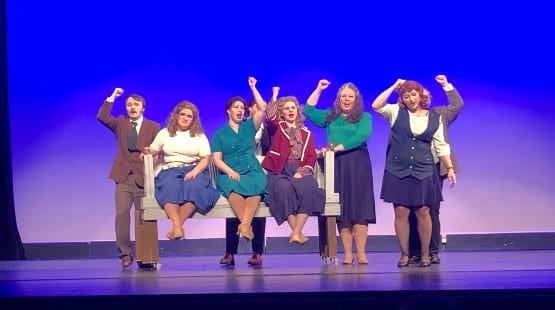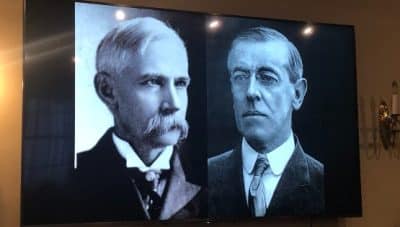Millennials can get a bad rap, but a new Gallup survey indicates that recent University of Virginia graduates are thriving and surpassing national averages in each element of well-being measured.
The survey polled 7,808 UVA alumni from the classes of 2001 to 2015, focusing on three broad categories: workplace engagement, well-being and attachment to the University. Eleven percent of respondents had been first-generation college students.
In each category, UVA’s young alumni exceeded national averages measured across the 61 members of the Association of American Universities. They were also significantly more likely to strongly agree that their degree was worth the cost (61 percent vs. 46 percent).
Below, we break down some of the survey’s findings and share stories from some young alumni. Read the full Gallup report here.
Workplace Engagement
Of the UVA graduates surveyed, 80 percent are are employed full-time, compared to 73 percent of national AAU graduates. Fifty-one percent (vs. 43 percent nationally) reported being engaged in their work, which Gallup defined as “being intellectually and emotionally connected to their organizations.” There was no significant difference in full-time employment between first-generation and non-first-generation students.
Some graduates, like 2012 Russian language and literature major Tyler DeBoard, have held several full-time jobs while moving up in their chosen fields. DeBoard has worked for advertising agencies in New York, Colorado and Texas, where he is now a creative recruiter for GSD&M, an agency with clients including Southwest Airlines, Hilton Hotels and Chipotle.
“I get to work with some of the best creative minds on the planet – which is equal parts rewarding and intimidating – and I have a great boss who empowers me to be independent,” DeBoard said. “I also genuinely love the people in the building, which truly makes all of the difference.”
2013 Curry School of Education graduate Erin Hairston has also changed jobs, teaching first in an elementary school in Albemarle County and now in Richmond.
“I love that I get to interact with kids all day,” Hairston said. “It’s never boring, there is never a dull moment at work.”
Jada Parrish, a 2012 studio art graduate, started her own businesses, J&D Photography, with her husband David, specializing in wedding photography and videography.
“The aspect I find most rewarding is that I am preserving lifelong memories for my clients,” she said. “I thrive off finding creative ways to document some of the most meaningful moments in their lives.”
UVA graduates were far more likely than their peers to have had a job waiting for them after graduation (41 percent vs. 31 percent nationally) and more likely to be engaged in their work if they had internships or other experiential learning opportunities while on Grounds.
That was the case for 2012 McIntire School of Commerce graduate John Mark DiGrazia, who has worked for strategy consulting firm Applied Predictive Technologies since his internship in 2011. He is now based in London, helping lead projects in South Africa and the U.K., and sales efforts in Spain and continental Europe.
“APT is a fantastic company and I’ve faced a wealth of responsibility and opportunities in my four-plus years on the job,” DiGrazia said. “I enjoy working on multiple client teams at a time and value the long-term nature of our client engagements, as I actually see the impact of our recommendations and changed decisions over time.”
Well-Being
The survey measured five elements of well-being – purpose, social, financial, community and physical – and UVA students exceeded national averages in all five. Notable findings include:
- UVA graduates were most likely thrive in purpose and social well-being (53 and 59 percent, respectively, compared to national averages of 42 and 47 percent).
- 47 percent reported that they were thriving financially, versus 40 percent nationally.
- First-generation students were slightly less likely than non-first-generation students to report thriving in each category, but were largely on par with or ahead of national peers.
- 11 percent of UVA alumni reported reaching what Gallup calls “the pinnacle of well-being,” thriving in all five elements. Only 6 percent of graduates nationally reported the same.
Kristin Twiford, a 2012 media studies graduate, now works with a marketing startup, PhotoShelter, in New York City. She said that UVA helped her find a job she loves in the city she has always wanted to be in.
“UVA showed me what to look for in a job and in a city,” Twiford said. “I was drawn to UVA because it was full of smart, ambitious people who were excited about the work they were doing. Now, that’s what I love about my job and living in New York.”
DiGrazia, the Londoner, also said lessons learned at UVA have helped him build a strong community after graduation.
“I credit UVA for pushing me to focus more on personal relationships than anything else, which can help surmount any challenge,” he said.
For Hairston, the teacher, her time on Grounds helped her develop the confidence and sense of self she was looking for.
“Growing up, my decisions were heavily influenced by my parents and friends,” she said. “My experience at UVA taught me to be more autonomous. UVA helped me develop the confidence I needed in order to trust myself when making those big choices and decisions in life.”
Alumni Attachment
Gallup measured alumni engagement based on agreement with two statements: “My university was the perfect school for people like me” and “I can’t imagine a world without my university.” Those who strongly agreed with both statements were considered emotionally attached to their university.
By that measure, 30 percent of UVA graduates showed a strong emotional attachment to their alma mater, compared with 25 percent nationally. There was no noticeable difference in attachment between first-generation and non-first-generation students.
Additionally, 65 percent of UVA graduates reported that they were challenged academically, greater than the national average of 56 percent.
DeBoard, the creative recruiter, recalls coming to UVA as a “shock to his system” coming from a small, rural town.
“It was disorienting at first, but it became a chance for me to finally push myself to see what I could accomplish,” he said. “I’m certainly not afraid of being thrown into the deep end anymore. UVA taught me how to swim!”
Parrish, the photographer, also credited UVA’s challenging academics as an important part of her success.
“UVA’s rigorous curriculum helped me develop time-management skills and helped prepare me for juggling the busy schedule that comes with owning your own business,” she said. “I also met some really great people while at UVA who have helped me move forward with my professional life.”










